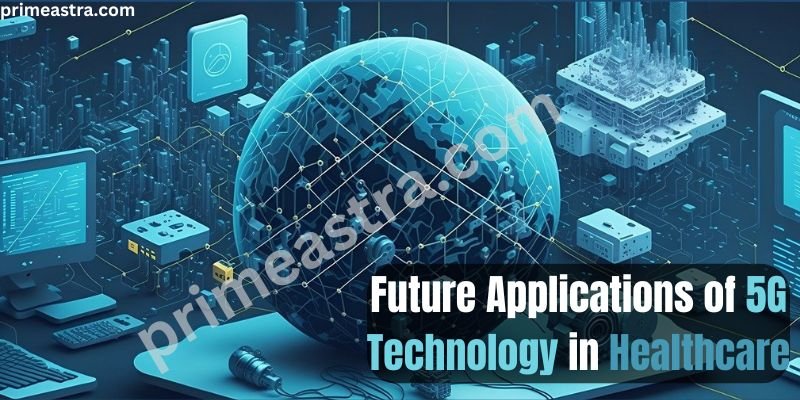
Future Applications of 5G Technology in Healthcare
The healthcare sector is undergoing a massive transformation, fueled by rapid technological advancements. Among these, 5G technology stands out as a game changer, promising to revolutionize how healthcare is delivered, monitored, and experienced. This article explores the future applications of 5G technology in healthcare, examining its potential benefits, challenges, and real-world implications for patients and healthcare providers alike.
Understanding 5G Technology
Before diving into its applications, let’s clarify what 5G technology is. The fifth generation of wireless technology, or 5G, offers faster data transfer speeds, reduced latency, and the ability to connect a vast number of devices simultaneously. This means that in healthcare, 5G can facilitate real-time communication, seamless data sharing, and improved patient outcomes.
The Promise of 5G in Healthcare
Imagine a world where doctors can perform surgeries remotely or where wearable devices continuously monitor a patient’s vital signs in real time, sending alerts to healthcare providers if something goes wrong. This isn’t science fiction; it’s the promise of 5G technology in healthcare.
5G Healthcare Use Cases
Here are some exciting 5G healthcare use cases that could shape the future of healthcare:
1. Telemedicine and Remote Consultations
With 5G, telemedicine can reach new heights. Patients living in remote areas often struggle to access specialist care. Thanks to 5G technology, doctors can conduct high-quality video consultations without lag, making remote healthcare as effective as in-person visits. For example, a patient in a rural town can have a video consultation with a specialist in a bustling city, receiving timely advice and treatment.
2. Enhanced Remote Monitoring
Wearable devices, such as heart rate monitors or glucose sensors, can benefit immensely from 5G technology. These devices can transmit data in real time to healthcare providers, allowing for continuous monitoring of patients’ health. This means that if a patient’s vital signs change suddenly, a doctor can be alerted immediately, enabling faster interventions. This impact of wearable health technology can be significant.
3. Augmented Reality (AR) and Virtual Reality (VR)
Imagine a surgeon using augmented reality to overlay critical information on their field of view during a procedure. With 5G technology, this is not only possible but practical. High-speed data transmission allows for AR and VR applications that can assist in surgical procedures, medical training, and patient education. For instance, a medical student could perform a virtual surgery simulation, gaining invaluable hands-on experience without the risks associated with real-life surgeries.
4. Smart Hospitals
The concept of smart hospitals is becoming increasingly feasible with 5G technology. Hospitals can integrate connected devices that communicate with each other, streamlining operations and improving patient care. For example, smart beds could monitor a patient’s condition and alert nurses if they need assistance. Additionally, the use of robots for delivery within the hospital could reduce human contact, enhancing safety, especially in a post-pandemic world.
5. Data Management and Interoperability
The healthcare industry generates enormous amounts of data. With 5G, the ability to collect, share, and analyze this data in real time becomes much more efficient. Enhanced data management allows for better patient records, improved treatment plans, and informed decision-making. Healthcare providers can access comprehensive patient data instantly, leading to better outcomes. Learn more about health data management.
5G Technology in Healthcare and Wearable Devices: A Review
The integration of 5G technology with wearable devices marks a significant advancement in healthcare. These devices can gather data on patients’ health and transmit it to healthcare providers instantly. A comprehensive review highlights that this synergy will enhance the accuracy of health monitoring and improve patient engagement, as users can receive immediate feedback on their health status.
Challenges and Considerations
While the potential of 5G technology in healthcare is exciting, several challenges need to be addressed:
- Infrastructure Investment: Upgrading existing healthcare infrastructure to support 5G requires significant investment. Many healthcare providers may face financial hurdles in adopting this technology.
- Privacy Concerns: The increased connectivity raises questions about patient data security. Ensuring that patient information remains confidential is paramount. For more details, see health data privacy laws.
- Training and Adaptation: Healthcare professionals will need training to adapt to new technologies. It’s essential to invest in education to maximize the benefits of 5G.
Future Applications of 5G Technology in Healthcare PPT and PDF Resources
For those interested in learning more about the future applications of 5G technology in healthcare, many resources are available, including PPT presentations and PDF documents that delve into specific applications, case studies, and research findings. These resources can provide in-depth insights into how 5G is poised to transform the healthcare landscape.
Step-by-Step Guide to Implementing 5G in Healthcare
If you’re part of a healthcare organization considering the implementation of 5G technology, here’s a step-by-step guide:
- Assess Your Current Infrastructure:
- Evaluate your current technology setup and identify areas that could benefit from 5G.
- Identify Key Applications:
- Determine which 5G applications are most relevant to your organization. This could include telemedicine, remote monitoring, or smart hospital solutions.
- Engage Stakeholders:
- Involve all stakeholders, including doctors, nurses, IT staff, and patients, in discussions about the benefits and challenges of 5G technology.
- Plan for Training:
- Develop a training program for your staff to ensure they are comfortable using new technologies.
- Collaborate with Technology Providers:
- Partner with technology companies that specialize in 5G solutions for healthcare.
- Pilot Testing:
- Before a full rollout, conduct pilot tests to identify any issues and gather feedback from users.
- Monitor and Adapt:
- Once implemented, continuously monitor the performance of 5G applications and be ready to adapt your strategies based on results and user feedback.
Real-World Anecdotes
To illustrate the transformative power of 5G technology in healthcare, let’s look at a few real-world examples:
- Remote Surgery: In a groundbreaking procedure, a surgeon in New York performed a surgery on a patient in London using robotic arms connected via 5G technology. The procedure was a success, demonstrating how 5G can bridge vast distances in medical care. Learn more about remote surgery innovations.
- Chronic Disease Management: A patient with diabetes used a wearable device that communicated with their healthcare provider over a 5G network. The constant monitoring allowed the doctor to adjust insulin doses in real time, improving the patient’s health outcomes.
The Future is Bright
As we move forward, the potential of 5G technology in healthcare is enormous. It’s not just about faster internet; it’s about enhancing patient care, improving health outcomes, and making healthcare more accessible to everyone.
If you are part of a healthcare organization, investing in 5G technology is not just an option; it’s becoming a necessity. The future of healthcare is here, and it’s powered by 5G.
Conclusion
In conclusion, the future applications of 5G technology in healthcare promise a significant shift in how we approach medical care. From telemedicine to smart hospitals, the possibilities are endless. As this technology continues to evolve, so too will the opportunities to enhance patient care and improve the efficiency of healthcare systems.

